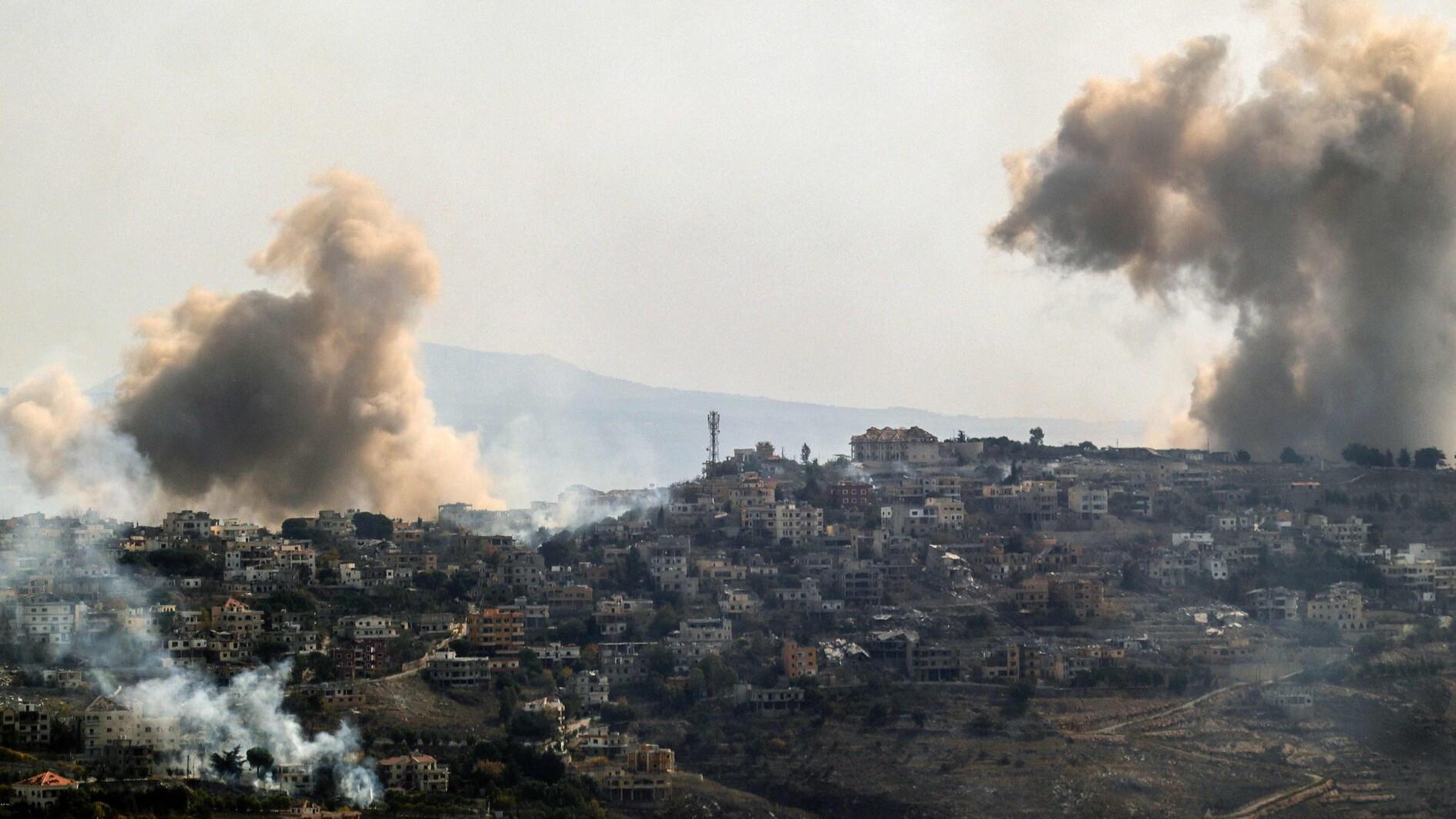
Senior U.S. officials were to meet their Israeli counterparts on Thursday to discuss a possible deal to end the conflict in Lebanon as Israeli airstrikes have pounded two towns in the country's historic Baalbek region.
Hours earlier, the Israeli military issued an evacuation warning for residents in the entire city — including its ancient Roman temple complex inscribed as a UNESCO World Heritage site.
The evacuation orders “prompted mass displacement and panic,” U.N. spokesman Stéphane Dujarric said on Oct. 30, and the strikes began several hours later.
In a televised interview with Lebanese broadcaster Al-Jadeed earlier, Lebanon’s caretaker Prime Minister Najib Mikati said earlier U.S. envoy Amos Hochstein had signalled during a phone call that a ceasefire was possible before U.S. elections are held on Nov. 5.
The U.S. visit came as Hamas rejected separate truce plans proposed for the fighting in Gaza, where Israeli strikes continued overnight.
Less than a week before the U.S. presidential election, Washington's envoys Amos Hochstein and Brett McGurk were expected in Israel, as Israeli forces continued their fierce ground and air campaign against Hezbollah targets in Lebanon.
On Wednesday, Lebanese Prime Minister Najib Mikati expressed optimism about a ceasefire in "the coming hours or days," and Hezbollah's new leader, Naim Qassem, said the group would accept a truce under certain conditions.
According to Israeli media reports citing government sources, the plan brokered by the U.S. team would see Hezbollah forces retreat around 30 kilometers (20 miles) from the border, north of the Litani River.
Israeli forces would withdraw from Lebanon, and the Lebanese army would then take charge of the border, alongside U.N. peacekeepers.
Lebanon would be responsible for preventing Hezbollah from rearming itself with imported weapons, and Israel would retain its rights under international law to act in self-defense.
'Sharp conclusion'
Diplomatic efforts are also underway to agree on a short halt to fighting in Gaza, where Israel is pummeling the remnants of Hamas, more than a year after the group launched its unprecedented attack on Israel.
But on Thursday, senior Hamas official Taher al-Nunu told AFP that the group rejected the idea of a short-term pause in the fighting, suggested by U.S. and Qatari mediators.
Mediators had hoped that a short pause would create a window to bring in humanitarian aid to Gaza's desperate civilian population and to negotiate a permanent ceasefire. But Hamas rejected this.
"The idea of a temporary pause in the war, only to resume aggression later, is something we have already expressed our position on. Hamas supports a permanent end to the war, not a temporary one," Nunu said.
Any deal to stabilize Israel's front with Lebanon is likely to come first, ahead of any ceasefire for Gaza.
Last week, Israel's chief of general staff, Lieutenant General Herzi Halevi, said, "In the north, there's a possibility of reaching a sharp conclusion."
On Thursday, Israel pressed its onslaught in Lebanon, which analysts say has put it in a position of strength to strike a deal.
The Israeli military issued an evacuation call for civilians in several areas of south Lebanon, including the Palestinian refugee camp of Rashidieh.
Previous such warnings in recent days have been swiftly followed by deadly air strikes.
Hezbollah named Qassem as its new leader on Tuesday, following the assassination of his predecessor Hassan Nasrallah by Israel in a massive airstrike last month.
In his first speech since taking over, Qassem said Hezbollah could continue to resist Israeli air and ground attacks in Lebanon for months.
But he also opened the door to a negotiated truce if presented with an Israeli offer.
"If the Israelis decide that they want to stop the aggression, we say we accept, but under the conditions that we see as appropriate and suitable," he said.
Air strikes
The war in Lebanon began late last month, nearly a year after Hezbollah began low-intensity cross-border fire into Israel in support of Hamas following its Oct. 7, 2023, attack on Israel.
The war has killed at least 1,754 people in Lebanon since September 23, according to health ministry figures, although the real number is likely to be higher.
Israel's military says it has lost 37 soldiers in Lebanon since ground operations began on Sept. 30.
In Gaza, journalists and local authorities confirmed there were more strikes overnight, but casualty numbers were not immediately available.
Hamas's attack on Israel last year resulted in 1,206 deaths, mostly civilians, according to Israeli official figures.
Israel's response has led to the deaths of 43,163 Palestinians in Gaza, most of them civilians, according to figures from the Hamas-run territory's health ministry, which the United Nations considers reliable.